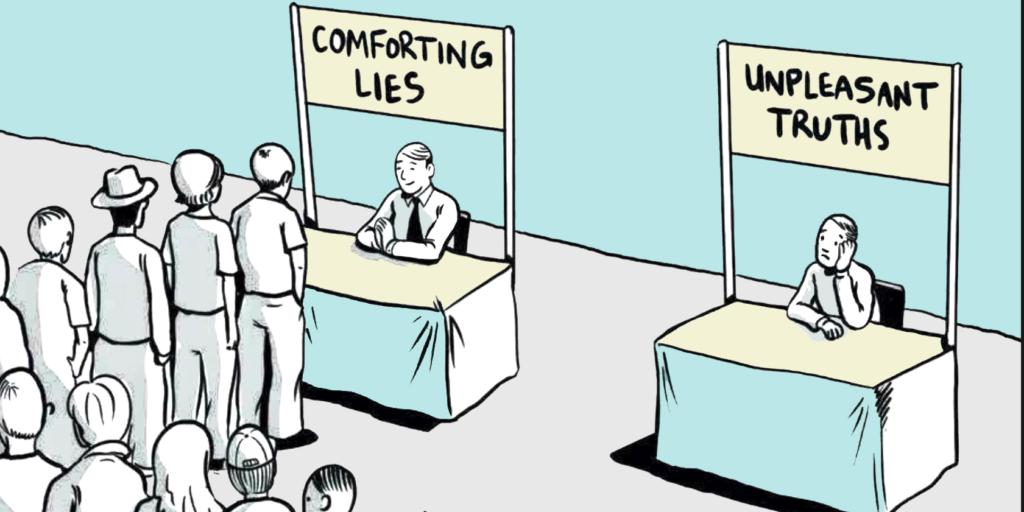Brooklyn Baggett
Co-Editor in Chief
It’s true that a lot of the time we hear what we want to hear, but this makes for a dangerous situation where our “facts” are clouded by opinions.

When you think of “bias,” you may be thinking of large news publications that put out ridiculously opinionated headlines, take quotes out of context, and at times completely spin information to fit their agenda.
We all know that modern media as a whole is responsible for its own bias, but it is up to us to take things into our own hands, to give ourselves the best perspective of reality.
In an effort to do just that, a lot of people end up subconsciously searching for what they want to be true, resulting in something called confirmation bias, or cognitive bias.
The most glaring problem with this is that once an individual reads what they want to believe, they stop looking for more information. This leaves so many sources unchecked and causes them to shut off their mind to other stories.
The longer our cognitive bias goes unchecked, the more difficult it becomes for us to look at all types of information objectively, leading to problems in everyday life, but more importantly in the way that we retain and interpret news related information.
Surprisingly, it’s not just what you choose to consume, but how you consume it. Confirmation bias can be found in three forms: search for information, interpretation, and memory.
When searching for information, without even noticing it, a lot of people word their searches in such a way that only the answer that affirms their belief will pop up. For example, if you search “Is _ better than _?”, you’re likely to find more sites that confirm that, rather than if it were the other way around.
In terms of interpretation, most people are so set in their beliefs, even after being presented with extensive evidence, because of the way they interpret it. We are prone to treating information that reassures our beliefs differently than we treat opposing arguments.
In a more separated way, you can actually remember things selectively if it helps to “confirm” what you wish to be true and accurate. More shocking information is also easily stored in the brain, which is why outrageous headlines are so effective at convincing the reader of something before they’ve even read the article- especially if it’s what they subconsciously want to believe.
Media generators and people on the internet alike are clever- and they know how to feed into your biases in order to help continue the cycle of being inadequately informed. So how are we supposed to make sure this doesn’t happen?
It might be uncomfortable at first, but start with identifying in what contexts you experience this type of bias. It’s hard to admit to ourselves that we are guilty of this, but ignoring it will only worsen the problem.
There’s no reason to feel bad about it, in fact, it’s just human nature. What you can do, though, is always look for the right answer, not to prove your initial theory.
This means using sites you might have never visited before (or avoided), and talking to people who think differently from you sometimes. Don’t take someone else’s word for it though, make sure to fact check anything you hear. (and not on CNN or Fox News)
Another way to beat cognitive bias is to not take a side until you have all of the facts. Submitting yourself to an opinion too early makes you more prone to reinforcement seeking.
Especially now, it is crucial that you, if you’re reading this, actually think about your personal biases. If everyone recognized their own confirmation bias, we would be so much better off in all aspects of our lives.
